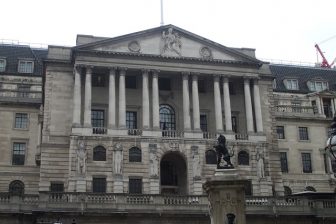 The Bank of England released their Money and Credit statistics yesterday, revealing that mortgage approvals rose in May, as borrowing costs skyrocketed
The Bank of England released their Money and Credit statistics yesterday, revealing that mortgage approvals rose in May, as borrowing costs skyrocketed
Net mortgage approvals for house purchases increased from 49,000 in April to 50,500 in May, while approvals for re-mortgaging saw a rise from 32,500 to 33,600 during the same period.
But despite mortgage approvals increasing, there remains a serious concern that the UK is headed for a ‘mortgage shock’ as homeowners come to the end of their pre-inflation deals.
“While consumers in the UK have done remarkably well to manage their finances thus far, we are seeing signs of emerging stress,” said Paul Heywood, chief data & analytics officer at Equifax UK.
Industry reactions:
Lucian Cook, head of residential research at Savills, commented: “It is worth remembering the marginal improvement in mortgage approvals for house purchase in May occurred in the run up to the recent repricing of debt. Even so it reflects a market which has become increasingly weighted to – and reliant upon – cash and equity rich buyers.
“The June number will be more telling given the timeline of turbulence in the mortgage markets. We’d expect to see greater focus on re-mortgaging at that point.”
Tom Bill, head of UK residential research at Knight Frank, said: “Monthly mortgage approvals are a quarter lower than before the pandemic as buyers adapt to higher rates in a volatile market. UK house prices will come under growing pressure given how much higher rates are compared to 18 months ago and we expect a 10% decline in UK prices by the end of 2024.
“When stability returns, we think demand will prove more resilient than expected given the cushioning effect of strong wage growth, record levels of housing equity, amassed lockdown savings, the availability of longer mortgage terms, forbearance from lenders and the popularity of fixed deals in recent years.”
Jason Tebb, CEO of OnTheMarket, said: “With approvals for house purchases, an indicator of future borrowing, edging up slightly in May, these figures indicate continued caution among buyers in light of consecutive interest rate rises and the high cost of living.
“Stubborn inflation figures point to further rate rises, making affordability even more of an issue for those buyers relying on mortgages.
“With offers regularly being made below asking price, it is crucial that sellers price correctly in the first instance as being sensitive on price will speed up the time it takes to find a buyer.”
Jeremy Leaf, north London estate agent, said: “This data is always a useful indicator of future direction of travel for the housing market and the signs are perhaps not as bad as we may have feared.
“However, the figures probably reflect decision-making from a few months ago at least so will not include much of the turmoil that followed the recent increase in mortgage rates. Nevertheless, we are still finding a determination to get sales done even if they are taking longer and the market is more price-sensitive. This is resulting in some heavy negotiations.”
Mark Harris, chief executive of mortgage broker SPF Private Clients, commented: “Although mortgage approvals ticked up again in May, buyers are concerned as to what’s going on in the wider economy and what they can afford.
“The average rate on new mortgages continued to rise in May, increasing by 10 basis points to 4.56 per cent. The worst of the pain may not be over with further rate rises possible as inflation proves to be more stubborn than the Bank of England previously forecast.
“Swap rates, which underpin the pricing of fixed-rate mortgages, are still edging upwards, with lenders pulling deals and repricing higher. This suggests we will see some volatility in the market for a while to come.”


Comments are closed.